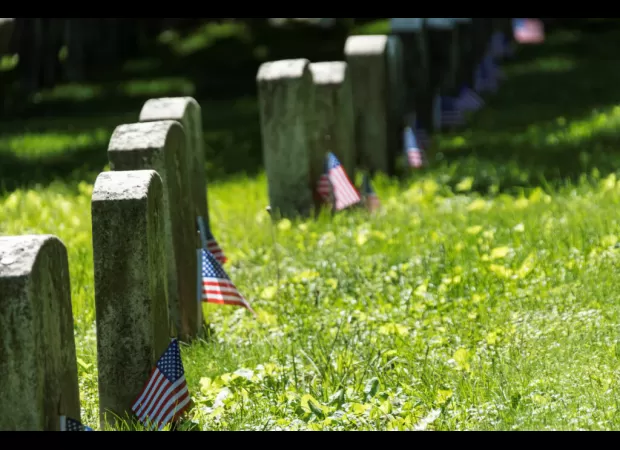Soldier who fought in the Black War of 1812 finally acknowledged as a veteran, over 150 years after his passing.
Giles' evidence of Neale's military pension in 1870 was ignored by the VA, who repeatedly denied his requests for recognition.

Samuel A. Neale, a courageous Black man, bravely served in the Maryland State Militia during the tumultuous War of 1812. Despite his service and sacrifices, he was not recognized as a veteran of the United States Armed Forces. However, thanks to the persistence of a local historian, Neale's story has finally come to light and justice has been served posthumously.
The Baltimore Sun reported that Louis Giles, a former NSA official and a passionate amateur historian of the War of 1812, took it upon himself to fight for Neale's rightful recognition. After extensive research, Giles discovered that according to the regulations of the Maryland militia, Black soldiers were entitled to military titles, regardless of their duties. He fervently argued that denying Neale this right was a clear manifestation of the racism prevalent during that time.
In July, Giles shared his motivation for pursuing this cause with the Baltimore Sun, stating, "Is someone at the VA discriminating against Black individuals? I cannot say for certain. However, their policies, as they have stated, are undoubtedly a form of discrimination."
Despite Giles' compelling arguments and evidence, the VA continued to reject his appeals and refused to grant Neale the recognition he deserved. Determined to make a difference, Giles took his case to the VA's court of appeals, where he pleaded his case in front of Judge Anthony Scire Jr. in June. Finally, on July 25, justice was served when Scire ruled that Neale was indeed an American soldier in good standing and was entitled to a free headstone.
Scire based his decision on the understanding that state militia units were equivalent to today's National Guard and that Neale was effectively serving the United States Armed Forces when he joined the fight. In his ruling, Scire stated, "Mr. Neale was a vital member of a federalized unit, led by a lawfully appointed officer, and he proudly wore his military uniform while openly carrying arms. He followed the laws and customs of war at that time."
Furthermore, Scire pointed out that official Maryland state records showed that the state legislature had recognized Neale as a veteran and granted him a pension for his service in 1870. Therefore, it was only fair and just that Neale be recognized as a veteran by the VA.
Although the ruling came too late for Neale to receive a free headstone, as Giles had already secured one from a stone mason in Frederick, Maryland, and held a private ceremony at St. John's Cemetery on July 26, it was never about the headstone for Giles. As he told the Baltimore Sun, "I always believed that if I had the opportunity to present my case to an unbiased judge, justice would be served."
Giles added, "This case should have been a clear-cut decision from the start. Not only did we have the muster roll, but we also had extensive evidence, far beyond what is typically seen in War of 1812 cases. The law was on our side, and Judge Scire's ruling proves that."
This historic ruling serves as a reminder of the bravery and sacrifices made by Black soldiers during the War of 1812, as well as the discrimination and injustices they faced. It also highlights the importance of fighting for justice and equality, even in the face of adversity. Let us honor the memory of Samuel A. Neale and all the other Black soldiers who fought for our country and were wrongfully denied the recognition they deserved.
1 Views






